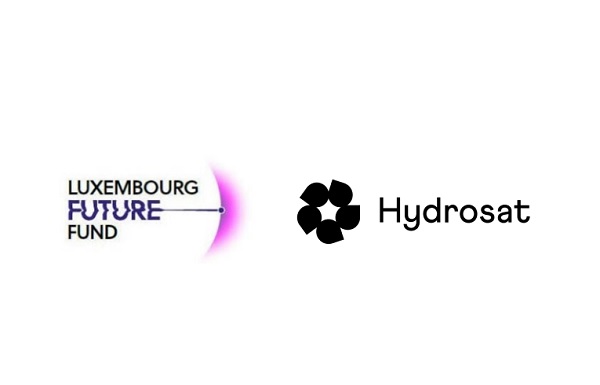
The Luxembourg Future Fund (LFF2), a joint initiative of Société Nationale de Crédit et d’Investissement (SNCI), the Luxembourg development bank and the European Investment Fund (EIF), has invested in Hydrosat, a company using satellite thermal imagery to combat some of the planet's most pressing natural resource and security issues.
According to the press release, Hydrosat's technology supports smarter decisions in agriculture, water management and disaster prevention.
"This investment is a strong vote of confidence in Hydrosat's mission to tackle some of the world's toughest challenges," said Pieter Fossel, CEO and co-founder of Hydrosat. "By harnessing satellite data, we are equipping governments and agribusinesses with the tools to increase resilience, secure supply chains and improve food production. The support of the Luxembourg Future Fund strengthens both our ability to scale globally and Luxembourg's position as a leader in space innovation."
By combining satellite imagery with advanced proprietary algorithms, Hydrosat provides near realtime insights into conditions such as soil moisture, crop health and water use. These insights allow farmers to optimise irrigation to grow more food, while also helping food companies manage their supply chains.
"Our thermal infrared satellites and AI-powered analytics provide clear insights anywhere on Earth. This empowers policymakers, agribusinesses and farmers to take the best actions backed up by realtime data," explained Royce Dalby, the company's President and co-founder. "With three billion people projected to face extreme water stress by 2050, according to the World Resources Institute, our solution is no longer optional - it is essential."
Luxembourg's Minister of Finance, Gilles Roth, is quoted as saying: "Granting access to venture capital finance to innovation - and sustainability driven companies like Hydrosat - demonstrates how Luxembourg's dynamic ecosystem enables cutting-edge companies to thrive. Through the Luxembourg Future Fund 2 investment into Hydrosat, we are also strengthening Luxembourg's position as a hub for sustainable finance and space technology, while supporting a company that creates both economic value and measurable environmental impact."
Luxembourg's Minister of the Economy, SMEs, Energy and Tourism, Lex Delles, added: "Hydrosat embodies the type of forward-looking entrepreneurship we want to foster in Luxembourg: they use cutting-edge space technologies to deliver concrete solutions for climate resilience. Supporting such innovation not only reinforces our competitiveness but also accelerates the transition to a more sustainable and resourceefficient economy."
The LFF investment will directly support Hydrosat's revenue and employment growth, as well as intellectual property development in Luxembourg. Currently, the company employs more than 25 people in Luxembourg, most of whom hold a PhD degree. It plans to double this number by the end of 2026, with many roles in the areas of machine learning and artificial intelligence (AI), geospatial remote sensing and environmental science research.
Headquartered in Luxembourg since 2018, with offices in the Netherlands and the United States, Hydrosat "drives innovation at the intersection of climate resilience and advanced satellite technology". The company added that product development and commercial operations are rooted in Luxembourg, in close collaboration with the Luxembourg Space Agency (LSA), the Luxembourg Institute of Science and Technology (LIST) and the Centre for Security, Reliability and Trust (SNT).








